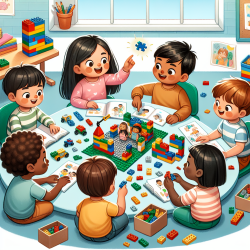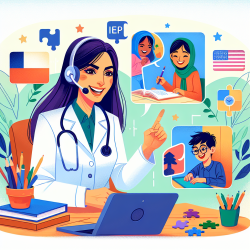What is LEGO® Based Therapy?
LEGO® based therapy is a group intervention that uses collaborative LEGO® play to enhance social interactions among peers. Guided by a trained adult, children work together to build LEGO® models, which fosters teamwork, communication, and problem-solving skills.Key Findings from the I-SOCIALISE Study
The I-SOCIALISE trial compared the social skills of autistic children who participated in 12 weeks of LEGO® based therapy with those who received usual support. The study involved 98 mainstream schools and assessed the social skills using the Social Skills Improvement System (SSIS).- LEGO® based therapy showed a small but positive impact on social skills at 20 weeks.
- The intervention was well-received by participants, parents, and teachers.
- Cost-effectiveness analysis indicated that LEGO® based therapy is a viable option for schools.
Implementing LEGO® Based Therapy in Your School
Based on the study's outcomes, here are some practical steps to incorporate LEGO® based therapy in your school:- Training: Ensure that facilitators receive adequate training in LEGO® based therapy. Training materials and manuals are available to guide the process.
- Session Structure: Conduct 12 weekly sessions, each lasting about an hour. Provide a variety of LEGO® sets and freestyle bricks to cater to different interests and abilities.
- Role Assignment: Encourage children to take on different roles such as the engineer, supplier, and builder to promote collaborative working and problem-solving.
- Adaptability: Tailor the intervention to suit the specific needs of your participants. Flexibility in rules and rewards can enhance engagement and effectiveness.
Encouraging Further Research
While the I-SOCIALISE study provides promising results, it also highlights the need for further research. Larger sample sizes, longer intervention durations, and exploration of specific mechanisms of action could offer deeper insights into the benefits of LEGO® based therapy.To read the original research paper, please follow this link: I-SOCIALISE: Results from a cluster randomised controlled trial investigating the social competence and isolation of children with autism taking part in LEGO® based therapy (‘Play Brick Therapy’) clubs in school environments.










